
Why Bad Data Quality Is Bad for Business
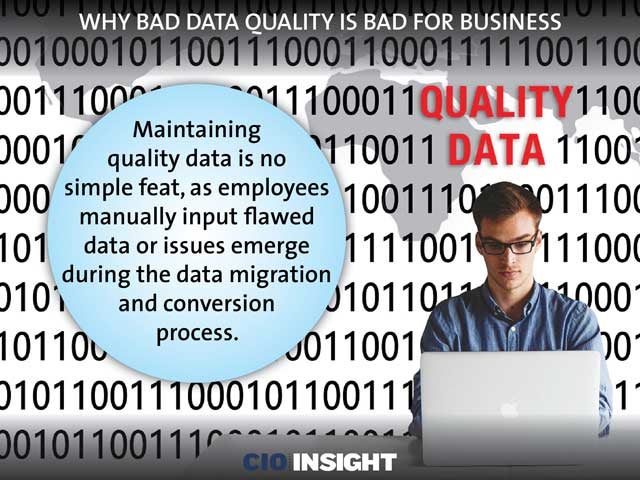 Why Bad Data Quality Is Bad for Business
Why Bad Data Quality Is Bad for Business
Maintaining quality data is no simple feat, as employees manually input flawed data or issues emerge during the data migration and conversion process.
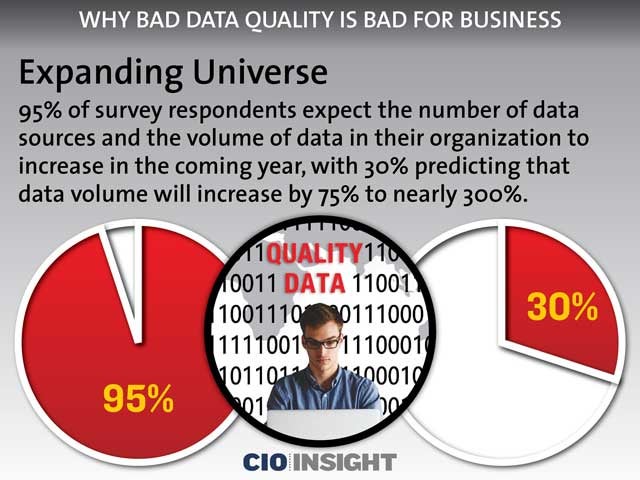 Expanding Universe
Expanding Universe
95% of survey respondents expect the number of data sources and the volume of data in their organization to increase in the coming year, with 30% predicting that data volume will increase by 75% to nearly 300%.
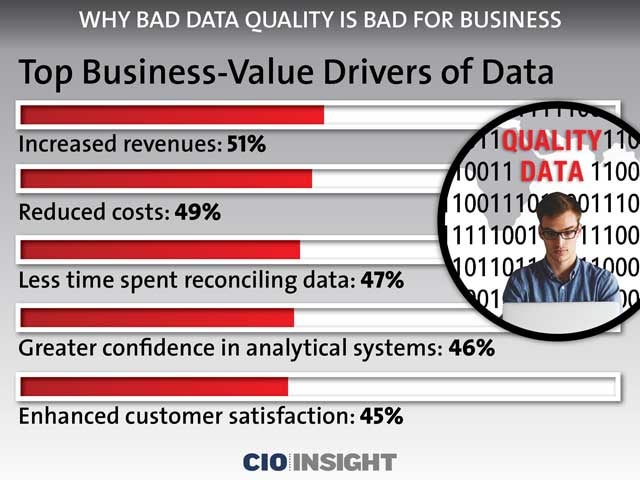 Top Business-Value Drivers of Data
Top Business-Value Drivers of Data
Increased revenues: 51%, Reduced costs: 49%, Less time spent reconciling data: 47%, Greater confidence in analytical systems: 46%, Enhanced customer satisfaction: 45%
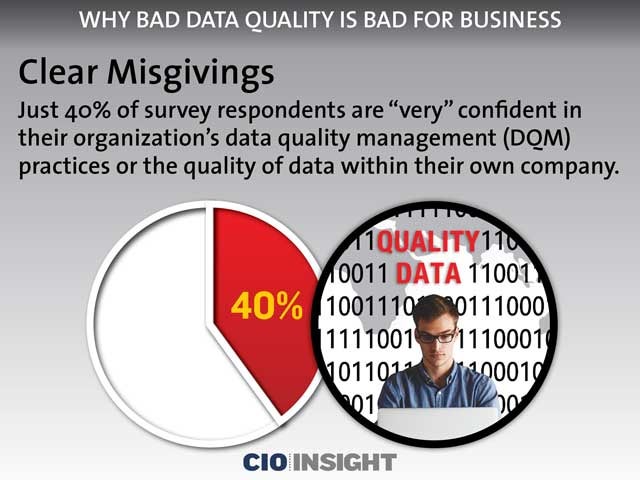 Clear Misgivings
Clear Misgivings
Just 40% of survey respondents are “very” confident in their organization’s data quality management (DQM) practices or the quality of data within their own company.
 Inflated Assessment
Inflated Assessment
82% believe their organization’s perception of its data quality is better than it actually is.
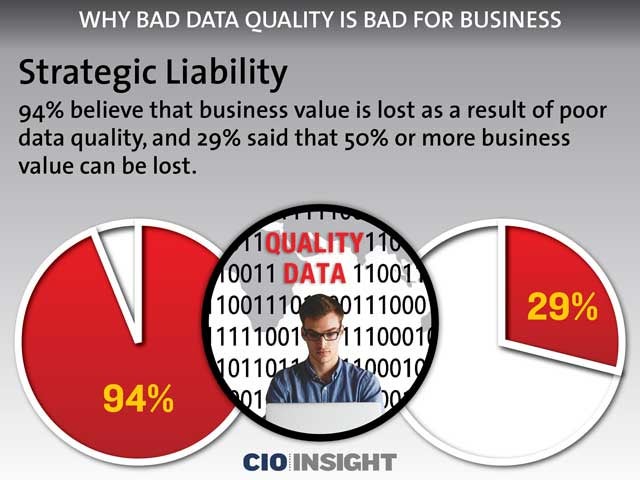 Strategic Liability
Strategic Liability
94% believe that business value is lost as a result of poor data quality, and 29% said that 50% or more business value can be lost.
 Problems Caused by Poor Data Quality
Problems Caused by Poor Data Quality
Extra time to reconcile data: 45%, Additional costs: 44%, Lost revenue: 42%, Delays in deploying new systems: 40%, Bad decision-making: 39%
 Likeliest Causes for Poor Data Quality
Likeliest Causes for Poor Data Quality
Faulty data entry by employees: 58%, Data migration or conversion project issues: 47%, Mixed entries by multiple users: 44%, Changes to source systems: 44%, Systems errors: 43%
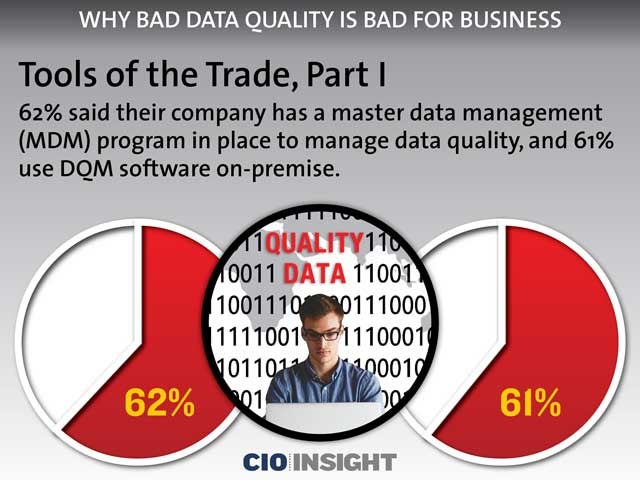 Tools of the Trade, Part I
Tools of the Trade, Part I
62% said their company has a master data management (MDM) program in place to manage data quality, and 61% use DQM software on-premise.
 Tools of the Trade, Part II
Tools of the Trade, Part II
53% said their organization uses a DQM cloud service to manage data quality, and 46% said they “find errors using reports and then act.”
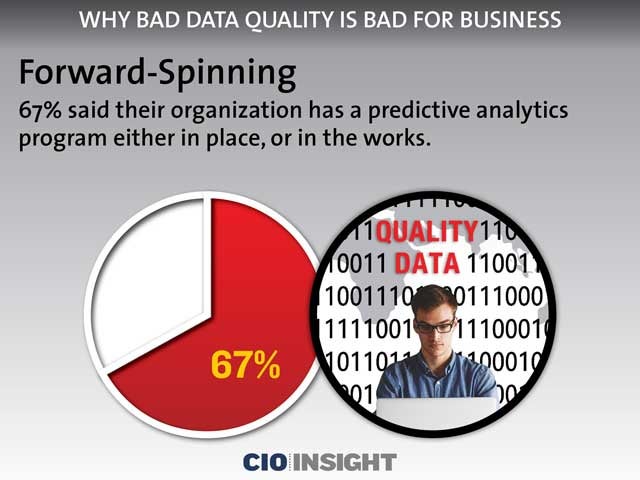 Forward-Spinning
Forward-Spinning
67% said their organization has a predictive analytics program either in place, or in the works.